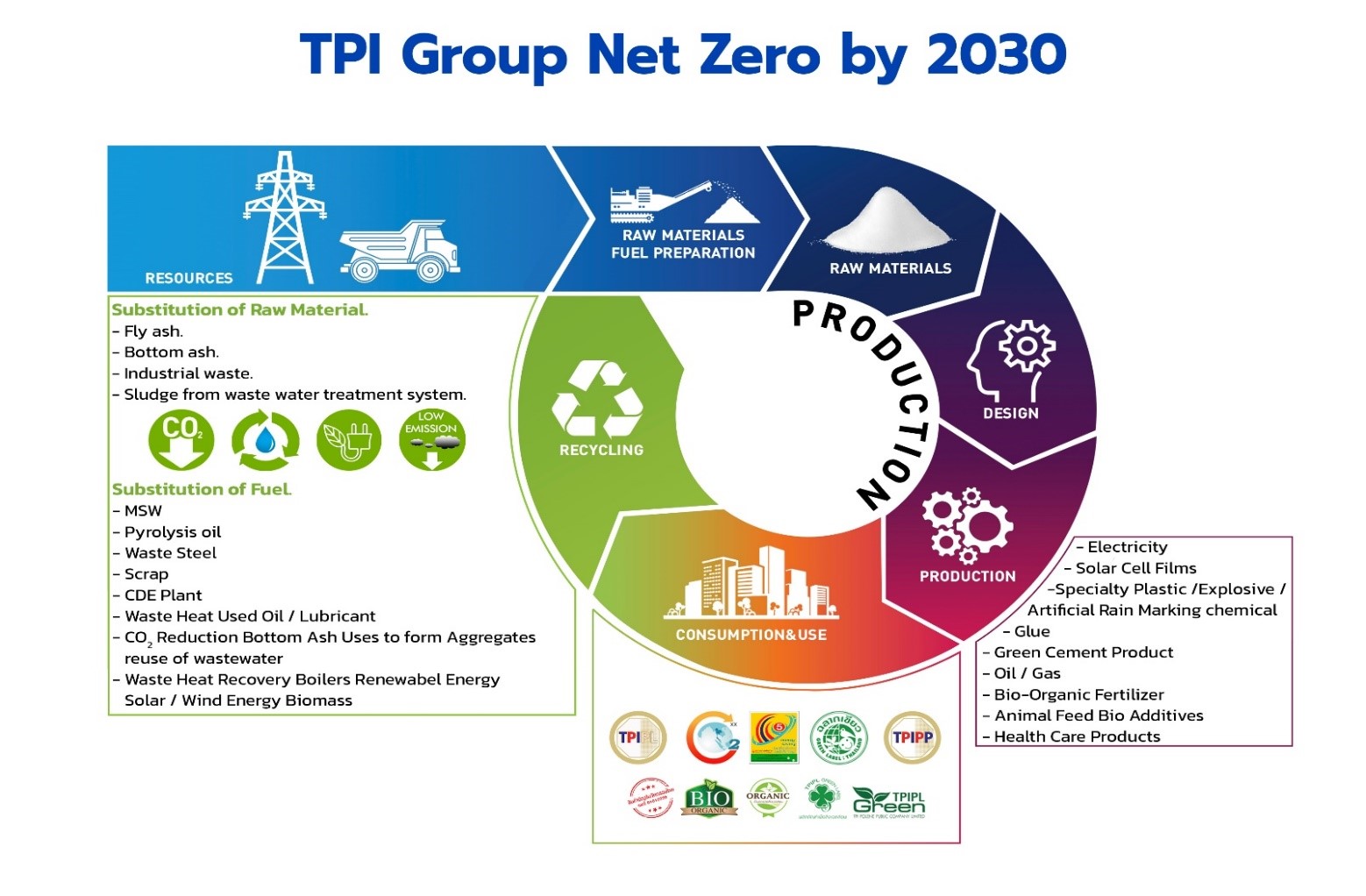TPI Polene Group recognizes the importance of resource utilization amidst the accelerating growth rate of the world population. Meanwhile, the supply of limited natural resources and inefficient consumption will cause various problems such as waste from consumption. This includes the use of energy that relies on fossil fuels, which contributes significantly to greenhouse gas emissions, which has a significant impact on climate change, which poses significant and inevitable challenges to the world in terms of economic, social and environmental dimensions, at present and in the future.
“We are depleting the natural resources of our descendants’ generation”; The sentence reflects the necessity to regain awareness of the problem and cooperate in concrete solutions. TPI Polene Group is committed to playing a role in solving such problems for our world under the principle of Circular Economy by executing from planning, R&D, production processes and products delivered to consumers to achieve circularity in the use of natural resources. The use of renewable fuel energy management creates added value for the byproducts or leftovers from the production process and waste management for reuse to maximize the use of resources and sustainability through the supply chain, with businesses sector, societies and communities.
Management Approach
TPI Polene Group aims for sustainable development in order to create a balance in terms of economy, environment, and society under good corporate governance. The terms “Circular Economy,” “Green Economy,” and “Bio Economy” are used interchangeably to refer to the Bio-Circular-Green Economy (BCG), which is used at every stage of the value chain by using waste fuel instead of coal for cement production and power generation and aiming to run a clean renewable energy power plant by completely eliminating the use of coal. replacing the use of coal 100% in order to move towards a clean green industrial business to be Net Zero Greenhouse Gas Emission Producers and environmentally friendly.
Driving the Economy towards Sustainable Development (BCG)
https://www2.tpipolene.co.th/th/investment/bcg-th
Drivong the Economy towards Sustainable Development (BCG)
TPI Group Net Zero by 2030

TPI Polene Group has prioritized sustainability policies and business operations based on BCG and ESG guidelines, including carbon neutrality campaign, saving the world campaign and ZERO WASTE campaign throughout the Group's production processes. The use of hydraulic cement instead of Portland cement is actively encouraged and supported due to its lower proportion of clinker, resulting in reduced carbon dioxide emissions. Consequently, when hydraulic cement is utilized as a raw material for constructing green buildings according to LEED and TREES standards, it contributes to a decrease in greenhouse gases and mitigates global warming. Additionally, starting from 1 June 2023, TPI Polene Group has implemented a policy to manufacture products aimed at reducing greenhouse gas emissions. This involves increasing the production of Green Products such as Green Clinker, Green Cement, Green Fiber Cement, and Green Concrete Roof Tiles (Green CRT). These products utilize alternative raw materials, alternative fuels, and electricity sourced from renewable energy, thereby further reducing greenhouse gas emissions.
TPI Polene Group has taken every step in our business operations, from research and development, procurement of resources, raw materials and energy, and put them under circular systems by recycling and employing reuse methods and technologies to reduce environmental pollution. Our goal is to use highly efficient production processes in both resource consumption and environmental protection, with the key objective to manufacture green products that are environmentally friendly. Consumers of such products, including sales, logistics systems and after sales services, under the circular economy, are part of our aim to create a green world.
Six material issues that are highly important in the Company's environment dimension in 2023 are as follows:
- Climate Change Management
- Materials
- Transportation
- Energy
- Water and effluent management
- Waste Management




